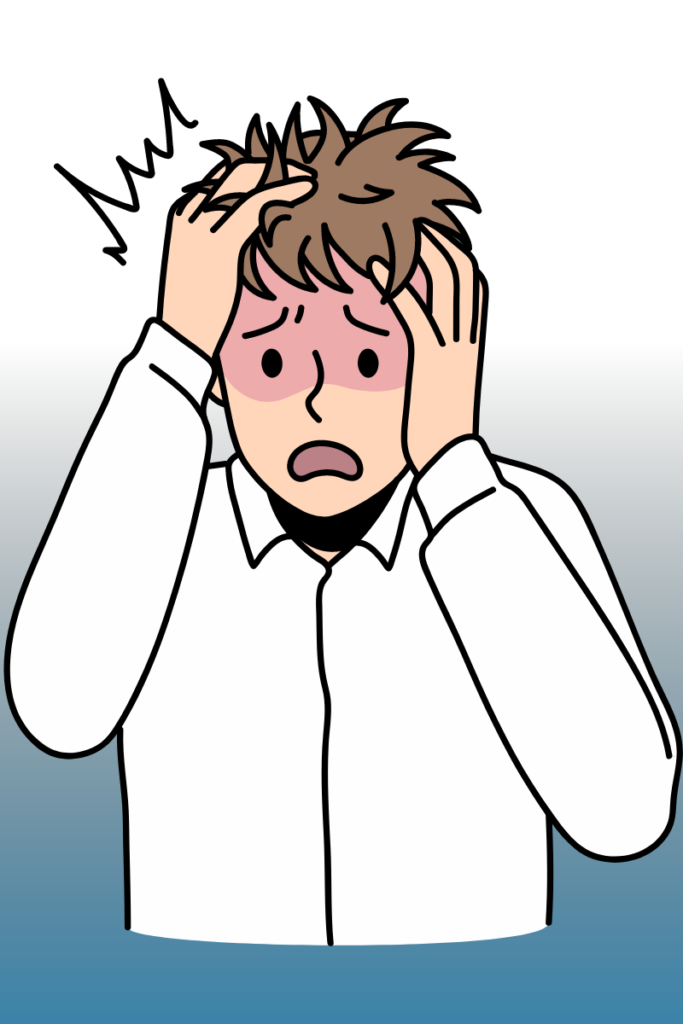Key to a more fulfilling life begins by examining the habits that may be steering you toward unhappiness.
Have you ever felt like a hamster on a wheel, running endlessly but never getting anywhere? That feeling of perpetual unhappiness, like Sisyphus pushing his boulder uphill only to watch it roll back down, can be incredibly draining. But unlike the mythical king, we have the power to break free from this cycle. While happiness might seem elusive, research reveals that 42% of it actually lies within our control, influenced by our daily choices and habits. So, what are the insidious habits that might be unknowingly dragging you down? Let’s delve into seven common pitfalls and equip you with effective tools to escape their clutches.
Table of Contents
1. The Perfection Paradox
Aiming for flawlessness might sound admirable, but in reality, it often becomes a self-inflicted torture chamber fueled by perfectionist habits. A study published in the Journal of Personality and Social Psychology found that perfectionism is strongly linked to anxiety, depression, and even physical health problems. Remember, progress, not perfection, is the key to true fulfillment. Let go of the need to be flawless, accept the “good enough” mindset, and celebrate your efforts along the way.
2. The Envy Epidemic
In the age of social media, where everyone seems to be living their “best lives,” it’s easy to fall into the comparison traps — detrimental habits that can negatively impact your well-being. A University of Pennsylvania study found that comparing yourself to others on social media significantly decreases self-esteem and life satisfaction. Instead of fixating on the carefully curated highlights of others, shift your focus inwards. Appreciate your unique journey, acknowledge your strengths, and find joy in the things that make you happy.
3. The Negativity Bias
Our brains, evolutionarily hardwired for survival, exhibit a natural predisposition towards prioritizing negative information—a cognitive tendency known as the ‘negativity bias.’ While this bias was once crucial for our caveman ancestors, it can cast a dark shadow on our present experiences. However, it’s not an unchangeable fate. Creating positive habits, such as practicing gratitude, can effectively counteract this bias. According to a study by the Greater Good Science Center at UC Berkeley, integrating habits of gratitude, like starting a gratitude journal, expressing appreciation to loved ones, or savoring the small joys of everyday life, can retrain your brain to focus on the positive. By consciously adopting habits that shift your focus, you can create a more optimistic perspective and enhance your overall well-being.

4. The Isolation Archipelago
Humans are social creatures, wired for connection. A study published in PLOS Medicine revealed that social isolation is as detrimental to health as smoking 15 cigarettes a day. Don’t let yourself become an island in an archipelago of connection. Nurture your relationships, engage in meaningful conversations, and don’t be afraid to reach out for support. Remember, strong social connections are vital for both physical and emotional well-being.
5. The Blame Game
Taking responsibility for your actions is important, but constantly blaming yourself or others breeds negativity and hinders growth. A University of California, Santa Barbara study showed that ruminating on past mistakes can significantly hinder emotional well-being. Forgive yourself and others, learn from your experiences, and focus on moving forward with a positive outlook. Remember, holding onto blame only keeps you stuck in the past.
6. The Illusion of Escapism: Breaking Free from Destructive Habits
When faced with challenges, it’s tempting to seek refuge in temporary distractions like excessive screen time or substance abuse. However, while these might offer fleeting relief, they ultimately mask deeper issues and can lead to further problems. A report by the National Institute on Drug Abuse highlights the link between substance abuse and increased depression and anxiety. Instead of escaping your problems, seek healthier coping mechanisms like exercise, mindfulness practices, or creative pursuits. True happiness lies in facing your challenges head-on and developing healthy coping skills.
7. The Past vs. Present Trap
Comparing your current self to your past achievements can be just as discouraging as comparing yourself to others. Remember, life is a journey, not a race. Celebrate your growth and evolution, acknowledging how far you’ve come instead of dwelling on what you haven’t yet achieved. A study by Columbia University suggests that focusing on gratitude for past achievements and setting realistic goals for the future can significantly boost happiness and motivation.
Remember, breaking free from these unhappy habits takes time and effort. Be patient with yourself, celebrate small victories, and don’t be afraid to seek professional help if needed. By shedding these self-defeating patterns and embracing healthier habits, you can rewrite your narrative and step onto a brighter path towards lasting fulfillment.
Questions
Additional Resources
- Books:The Happiness Project by Gretchen Rubin, Learned Optimism by Martin Seligman, The Power of Now by Eckhart Tolle
- Websites:Greater Good Science Center (https://greatergood.berkeley.edu/),
- National Institute on Drug Abuse (https://www.nih.gov/about-nih/what-we-do/nih-almanac/national-institute-drug-abuse-nida)
I appreciate you taking the time to explore the topics of finance, business, and motivation with me in this blog post. If you find the insights here valuable and are hungry for more knowledge, I invite you to visit my blog page. There, you’ll discover a plethora of articles covering a wide spectrum of finance, business, and motivation-related topics. Your journey towards success and enlightenment continues on blog narrator. See you there!
